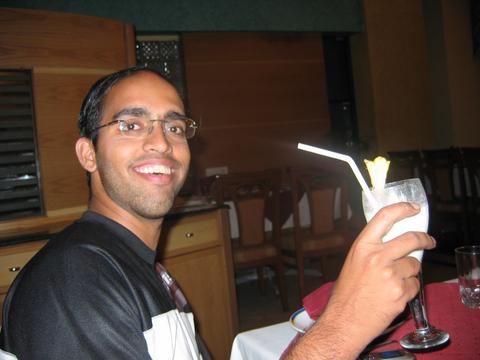It's been long since I have not posted anything. Have been pretty pre-occupied with work (for a change!) in the office, so didn't get much time for all such time-pass.
I have thought long and hard about the issue of reservations to OBCs in institutes of higher education. I have changed my stands a couple of times (or more) after taking a look at different angles, talking to different people etc. And finally I arrived at a conclusion. I oppose the move initiated by Arjun Singh. And here are my reasons:
1. I am not against the idea of reservations, and not even against the idea of reservations based on caste. However, which castes to reserve for, how much to reserve for them and so on is, according to me, a very important topic which is being missed in this debate. There are extremely conflicting numbers coming from many government agencies regarding OBC contribution in the total Indian population. Firstly, there has to be a consensus on this number. And then only should we finalize the quota. Its a topic which has not been given enough research in the controversy, which is sad.
2. If we apply the rule x% of the population then give x% reservations, then this rule must be strict. I mean, if x% is reserved for caste Y, then no institute should admit more than x% from caste Y. Even if those additional students can get admission in the general quota by virtue of merit. This is a point very few people are discussing but it is a very vital one. If you want to give someone x% representation then restrict it to x%. Otherwise you are doing grave social injustice to other sections.
3. There must be a limit to the whole issue. There should be a limit to max % of reserved seats per college. There should be limit to which places reservation applies. e.g. Why is their not enough debate on restricting reservations to graduation level? There should be limit to which fields - e.g. reservation in Defense, higher medical education, and other such hyper sensitive fields must be less than the other fields. There should not be a blanket rules saying x% reservation everywhere. There should be a limit on the number of generations for which the benefit is applicable. There should be a limit on the number of times the same individual gets the benefit. e.g. If a benefit (+ scholarship) is given at graduation level to a student, it should not be given at post graduation level to the same student. Why is the government not considering these alternatives?
4. The decision to increase the number of seats is impracticable. If institutes are forced to do so, their quality will degrade. The goverment should focus on why there are not enough teaching staff available to handle the increased load? Why does India have only 6 IITs and IIMs? Why is their number not increasing?
5. There must be a comprehensive study of reserved category students' performance and its trend over the past few years. This is the only measure of effectiveness of this policy. Why is the government not taking any step to measure that?
6. If the poiticians are so damn serious, why noone dares to speak about reservations in parliament?
If we try to find answers to these and many more such questions, we will agree on one thing. Social justice is not the only objective the government is trying to achieve. It is clearly playing a dirty game of populist vote bank politics. A game which has the potential to divide the nation. Recently, some reserved class scientists have made protests to increase reservations in Scientific domains. The fire once started is very hard to extinguish.
So much so about the problem. Now - how can it be solved? One solution - All higher caste citizens MUST vote. There is not much else that can be done. As one of my friends wrote to me - This is one disadvantage of democracy.
- Ashutosh
